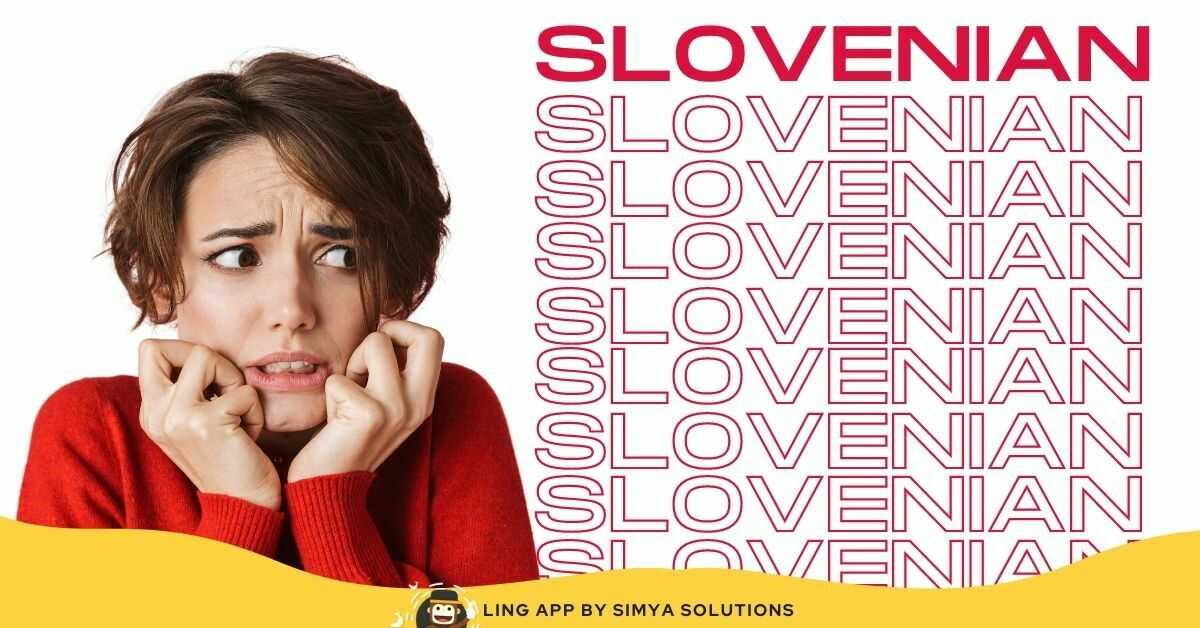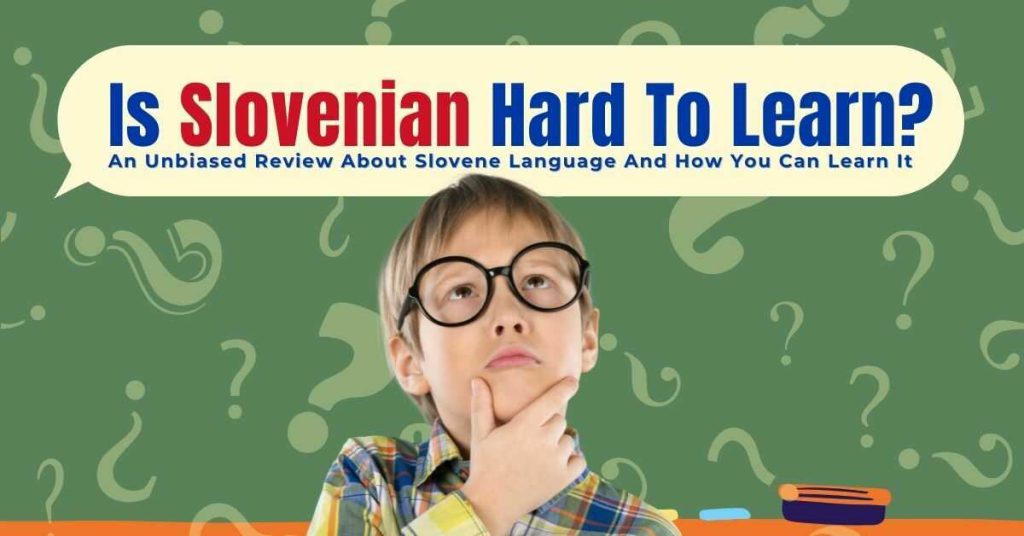Have you been on the lookout for what foreign language you can learn next? If you are interested in learning a South Slavic language, then you probably have come across the Slovenian language. However, one question is probably haunting you: is Slovenian hard to learn? In this post, we will do a deep dive session on why you should consider learning Slovene and what makes it a bit challenging for native speakers of other languages. To also help you kickstart your learning session on the right foot, we will also give your our most recommended approaches on how you can start your language learning routine strong.
For many of us, learning a new language is an important goal especially since it is found to be very useful given the trends in today’s society. Gone are days when we can simply rely on our technical skills to land our dream roles in some of the biggest companies. Today, you also need to develop expertise in other hard skills so that you can set yourself apart from other candidates. One example of a hard skill that is quickly becoming popular in the industry is the ability to speak a foreign language.
Now that the world is getting smaller and almost everything is going global, learning some of the most in-demand and difficult languages there are today can significantly help you occupy a niche in whatever career you plan to be in. Contrary to common belief native speakers of other languages are not just getting employed to become writers, researchers, or translators! Today, almost every company out there is interested in hiring polyglots or bilinguals because of the following reasons:
- Having native language speakers in one’s team can help ensure that the company will succeed in international markets.
- Adds to the diversity of the company and will help other employees gain a perspective about a culture different from theirs.
- In terms of customer service, there is no one who can understand your international clients better but native speakers.
- Since language learning is found to boost cognitive skills, we can generally assume that bilinguals are smarter than your average employees.
- Native speakers of a particular language can help expand the business and reach a wider audience.
Now that we have an idea of how useful it is to develop a skill in different languages, perhaps you are bothered by the question, what language should I start with? As a rule of thumb, do remember that choosing the best one truly depends on your motivations and interests because at the end of the day… all languages are equal and there is nothing better than another. However, if you are passionate to learn the language spoken in Slovenia and in some parts of Russia and Italy, then mastering the Slovene language is a solid choice.
If you are still stuck on the rut and wondering if this Slavic language is worth your time, then get to know the details below.
Is Slovenian Hard To Learn?

Tired of just being able to speak English? Learning some of the uncommon languages will significantly help you out. One example of that is the Slovene language, one of the Slavic languages that are spoken by about 2.3 million people across the globe. It is the official language of Slovenia but is also spoken by some from Austria and Italy.
In as much as we want to say that learning Slovenian is easy, we cannot deny that this is perhaps one of the hardest languages there is to master. Based on the language difficulty ranking of FSI, native English speakers will need to devote at least 1100 hours before they progress in this language. And when we say “devote,” that literally means that you must have a strict language learning process to follow like the ones you will find in language schools.
For this reason, learning basic vocabulary and phrases alone will not help you out right away. What will certainly help you progress start to speak Slovenian is when you try to drill into the language’s grammar and cultural meanings. Instead of just memorizing words, learning this entails that you will read and understand Slovenian literature. In addition, learning Slovene means that you should progress holistically and put yourself out there to speak with many Slovenians too.
Looking back on its difficulty level, it is just as hard as other languages like Russian and Croatian. The only downside here is that finding the right resources (or courses) can be a bit difficult since it is not as popular as other in-demand languages for native English speakers like Spanish, German, Italian, or French.
Just because Slovenian seems hard, do remember that it is not entirely impossible not to learn it. No matter how difficult learning may be, it is important that you remind yourself why you are studying it. At the end of the day, your willpower can tackle anything! If you are convinced to learn Slovenian despite it being a difficult language, then you have to check out the five approaches below on how you can learn it.
5 Ways To Master The Slovene Language As A Second (And Foreign) Language

When it comes to learning languages, there is no one particular way that will magically turn you into a Slovene-speaking person in an instant. As with most other languages, there are several approaches that we can take since we are all unique and we learn differently. So depending on what your learning style is and your interests, you must design your language learning experience based on it. Below are some examples of the top approaches you might consider.
- If you are motivated in learning new vocabulary words every day, it would be wise to make use of flashcards or study decks. You may do it traditionally or consider doing it virtually via Quizlet and Anki.
- Since the pronunciation of Slovene words may slow beginners down, one great way by which you can practice is through speaking with native speakers. While it may be hard to find a lot of people who are speaking this language (depending on where you are), you may consider connecting by using language exchange apps like Tandem or HiNative. By allowing yourself to communicate with language speakers, you can prevent yourself from speaking your first language and try your best to make use of all the Slovene words, phrases, and expressions you learned before.
- If you are ready to drill down on grammar points and how to structure sentences like a real pro, then you should consider making use of language textbooks published by professionals. Grammar is important for language students to learn since it helps one to create meaningful exchanges without having to rely on Google Translate.
- To train yourself with the grammatical structures and Slovene words, changing the local language of your mobile devices can significantly benefit you. Imagine using your Facebook account or Twitter account to learn a language while entertaining yourself!
- Download useful language learning applications that have gamified content (to keep you motivated and excited) and an AI chatbot (to speak Slovene without any pressure) like the Ling App by Simya Solutions. The Ling App is a unique language learning platform complete with all the features and top-of-the-line lessons on Slovenian language geared for users of all levels.
As we reach this part of the post, we hope that you were able to learn why you should still challenge yourself to learn the Slovene language. If you enjoyed this post and would love to learn more details, we highly recommend that you download the Ling App so that you can start learning on the right foot.









































